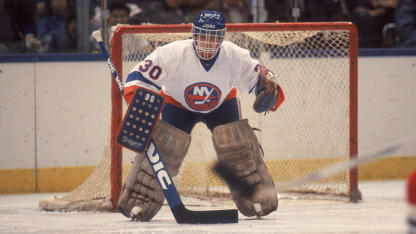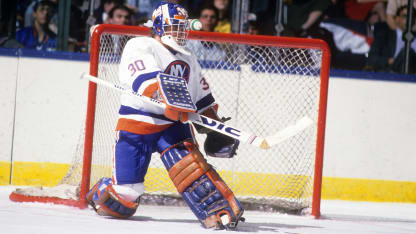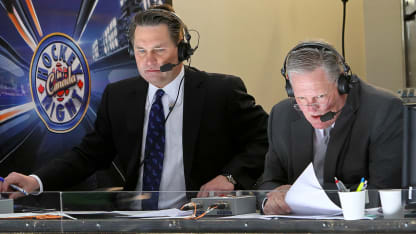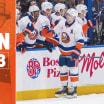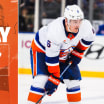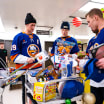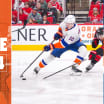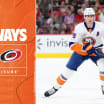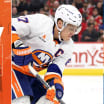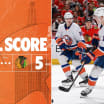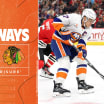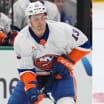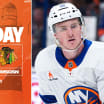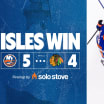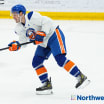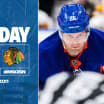ALUMNI CORNER: DARIUS KASPARAITIS | ALEXEI YASHIN
"Back then, I don't think we hydrated properly before the game or during the game," Hrudey said. "We certainly didn't have the snacks or the food during the intermissions that they do today...I think I got into the dressing room at 2:15 and it was time to take off my equipment. When I got to my skates, and this is no exaggeration, when I took my skates off, I was so dehydrated that my toes curled under. They couldn't straighten anymore I was so dehydrated.
So, what did I do wisely? I downed two beers. Maybe not the best way to rehydrate back then, but they still tasted great."
Hrudey was traded to the Kings in 1989 and while that didn't sit well with the goalie at the time, it offered an opportunity to play with Wayne Gretzky and advance to a Stanley Cup Final in 1993. He finished his playing career with the Sharks, but even after 677 games, couldn't get enough of the game.
After retiring, Hrudey went into broadcasting, currently working as an analyst for Hockey Night in Canada, as well as a color commentator for the Calgary Flames, though the seeds for a TV career were planted long ago.
"I watched all of the broadcasts," Hrudey explained. "Not only did I watch all of the games, but I watched the intermissions. I watched the players being interviewed and whether they embraced the chance to speak to the broadcasters and shared something more interesting than another player. And I watched the broadcasters themselves...I thought, 'Hey, I might want to get into this one day when I'm done.'"
It was in Los Angeles that Hrudey got his big break. As a backup goalie one night with the Kings, Hrudey did an extended sit-down with Stu Nahan, about five or six minutes, on KTLA. Unbeknownst to him, Hockey Night in Canada producer John Shannon and host Ron MacLean were watching and were impressed with his TV acumen and gave him a chance to fill in on air when his schedule allowed.
"I was discovered in Los Angeles," Hrudey said. "They [Shannon and MacLean] say the lightbulb kind of went on. They called me a couple of years later to come try it out. I tried it out, I fell in love with it and luckily, they thought I was okay. I've been there full-time since 1998 and I did it four years as a player whenever I could from 1995."
